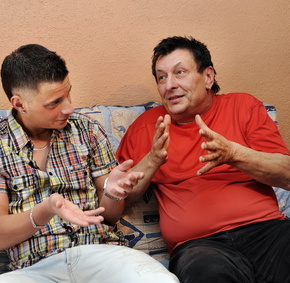Frustrated with a lack of progress? Improve your consistency!
 Many parents who are frustrated with their ADHD children come into my office and complain that “No matter what we do, our son (or daughter) doesn’t change. Nothing works.” As I meet with these families, the heart of the problem usually lies with inconsistency. Sometimes parents can create a plan of action to deal with behaviors and stick with it; other times, they are improvising moment by moment. Too often, they get stuck and feel defeated. With all of these different scenarios, the ADHD kids, who thrive on predictability, can end up feeling confused. How can we change these patterns and create more success? Inconsistent parenting reflects mixed messages and unclear rules that evolve over time and unintentionally. It’s not something people decide to do: it frequently occurs because parents are tired, worn down and out of ideas. Inconsistent parenting can look like this: One school night, you let your 10 year old ADHD son stay up until 11 pm to watch the football play-off game because you don’t want to miss any of the action to put him to bed. Yet, a few days later, when he wants to watch a basketball game with you past 10 pm, you refuse. Here’s another example: You tell your teenage daughter that she will lose her phone for the evening when she doesn’t clean up her room as you both agreed but then you let her keep it when she goes out so you can reach her.
Many parents who are frustrated with their ADHD children come into my office and complain that “No matter what we do, our son (or daughter) doesn’t change. Nothing works.” As I meet with these families, the heart of the problem usually lies with inconsistency. Sometimes parents can create a plan of action to deal with behaviors and stick with it; other times, they are improvising moment by moment. Too often, they get stuck and feel defeated. With all of these different scenarios, the ADHD kids, who thrive on predictability, can end up feeling confused. How can we change these patterns and create more success? Inconsistent parenting reflects mixed messages and unclear rules that evolve over time and unintentionally. It’s not something people decide to do: it frequently occurs because parents are tired, worn down and out of ideas. Inconsistent parenting can look like this: One school night, you let your 10 year old ADHD son stay up until 11 pm to watch the football play-off game because you don’t want to miss any of the action to put him to bed. Yet, a few days later, when he wants to watch a basketball game with you past 10 pm, you refuse. Here’s another example: You tell your teenage daughter that she will lose her phone for the evening when she doesn’t clean up her room as you both agreed but then you let her keep it when she goes out so you can reach her.  Consistent parenting means having the same consequences for the same behaviors over time—again and again and again. They don’t change and can’t be negotiated. It means that you don’t give your ADHD children and teens consequences that you can’t enforce or remember or don’t want to deal with. ADHD kids need to know what is coming so they can learn from their experiences and start to understand that their actions have effects. This is exactly where their executive functioning skills are weak. It takes time and repetition. You have to lay the foundation for this consistency by establishing clear guidelines for behavior with your son or daughter that mean something to them and to you. The process is collaborative but ultimately not democratic; you still have the final and most powerful vote because, after all, you are the responsible adult. How can you begin this process?
Consistent parenting means having the same consequences for the same behaviors over time—again and again and again. They don’t change and can’t be negotiated. It means that you don’t give your ADHD children and teens consequences that you can’t enforce or remember or don’t want to deal with. ADHD kids need to know what is coming so they can learn from their experiences and start to understand that their actions have effects. This is exactly where their executive functioning skills are weak. It takes time and repetition. You have to lay the foundation for this consistency by establishing clear guidelines for behavior with your son or daughter that mean something to them and to you. The process is collaborative but ultimately not democratic; you still have the final and most powerful vote because, after all, you are the responsible adult. How can you begin this process?
- Get some paper and a pen and sit down with your family. Start with a fair assessment of the basic rules. Ask your kids what they think the consequences should be for not following them. Sometimes they will come up with ideas that are far more impactful that you will.
- Pick the top 3 issues and create a plan of action for not cooperating. Write everything down.
- Meet alone with your parenting partner (if you have one) and go through this list. Ask yourselves if you can honestly follow through on the consequences and how you can support each other to do so. If you can’t do them, come up with other ideas that you can enact.
- Meet again with the family. Go over the plan. Post it in a place where everyone can see it and refer to it when needed.
- For the next 3 months, meet every two weeks to check in, see how things are going and make any necessary changes to what you are doing that would help things go more smoothly.

